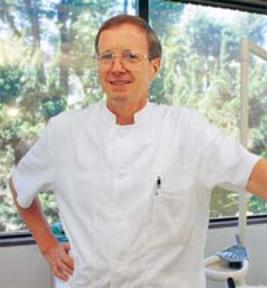BUSINESS
Get the
drill

Tom Ward was working and studying in Japan when he decided he wanted to be a dentist. He went to the US to be trained, but then returned to set up his practice in Japan. He shares his experience with other foreigners contemplating a medical career here.
TC: How does a foreigner become licensed as a doctor or dentist in Japan?
TW: A foreigner with a degree from an overseas medical or dental school can take the national licensing examination here if he can demonstrate proficiency in Japanese and give an adequate reason why he should be here. That process requires reams of documents going back to elementary school and takes about a year. If approved, he can take the exam, which is easy, except for the fact that it is in Japanese. I only know of three Americans who have passed it in the last thirty years.
TC: Have you faced any discrimination from Japanese colleagues or patients?
TW: None whatsoever from either dentists or educators. To the contrary, they helped me every step of the way. Although most of my patients are American or European expatriates, I do have some who are Japanese. When I received my dental license here, a Japanese journalist told me that I could not expect many Japanese to come to my office as it is common knowledge among them that American dentists are clumsy and charge too much. I now realize that virtually everyone thinks that his country's medicine is the best in the world, just as he thinks that his culture is the most advanced, and his soldiers are the bravest.
TC: Is there anything that makes it more difficult to practice here?
TW: Of course there are the problems of high rent and the language, but in several respects it is actually easier. Much of the dental equipment and materials used in the US is manufactured right here. In addition, the Japanese dental laboratory technicians who make the crowns and dentures are world-class. My office staff - dental hygienists, assistants and receptionists - are very conscientious and a pleasure to work with. I have now been in Japan so long I am afraid I might have difficulty being rehabilitated to life in America.
Incidentally, managed care, which has not had much luck with organizing dentists in the US, has a far greater effect on dentistry in Japan in the form of national health insurance. Licensed foreign doctors can accept Japanese national health insurance if they choose. I have chosen not to, because the system places restrictions on materials and procedures that a dentist can use and because many foreigners have not been happy with the treatment they received under it.
Dr. Ward works at the Dental Office OC3 Hibiya (03) 6205-4546.
